Bishop of Winchester
| Bishop of Winchester | |
|---|---|
| Bishopric | |
| anglican | |
|
Arms of the Bishop of Winchester | |
|
Incumbent: Tim Dakin | |
| Province | Canterbury |
| Diocese | Winchester |
| Cathedral |
Winchester Cathedral (since 660) Dorchester (634–660) |
| First incumbent | Wine |
| Formation |
634 (at Dorchester) 660 (translated to Winchester) |
The Bishop of Winchester is the diocesan bishop of the Diocese of Winchester in the Church of England. The bishop's seat (cathedra) is at Winchester Cathedral in Hampshire.
The Bishop of Winchester is appointed by the Crown, and is one of five Church of England bishops who are among the Lords Spiritual in the House of Lords regardless of their length of service. The Lords Spiritual are the 26 bishops in parliament. The other members are called the Lords Temporal.
The Diocese of Winchester is one of the oldest and most important in England. Originally it was the see of the kingdom of Wessex, with the cathedra at Dorchester Cathedral under Saints Birinus and Agilbert. It was transferred to Winchester in AD 660. During the Middle Ages, it was one of the wealthiest English sees and its bishops have included a number of politically prominent Englishmen, notably the 9th century Saint Swithun and medieval magnates including William of Wykeham and Henry of Blois.
A cathedral at Dorchester was founded in 634 by the Roman missionary Saint Birinus. It was the seat of a Bishop of the West Saxons; the episcopal see for that kingdom was moved to Winchester in 660 and so the Wessex Bishops of Dorchester were succeeded by the Bishops of Winchester.
Winchester was divided in AD 909, with Wiltshire and Berkshire transferring to the new See of Ramsbury. Nevertheless, the domains of the Bishop of Winchester ran from the south coast to the south bank of the River Thames at Southwark, where the bishop had one of his palaces, making it one of the largest as well as one of the richest sees in the land. In more modern times, the former extent of the Diocese of Winchester was reduced by the formation of a new diocese of Southwark in south London, a new diocese of Guildford in Surrey and a new diocese of Portsmouth in Hampshire. The most recent loss of territory was in 2014 when the Channel Islands were removed from the diocese of Winchester after a dispute with Bishop Tim Dakin led to a breakdown in relations. However, this arrangement is expressed to be an interim one and will not necessarily become permanent. The Channel Islands remain part of the Diocese of Winchester effectively under a scheme of episcopal delegation. The Bishop of Winchester delegated his episcopal authority in relation to the Channel Islands to the Archbishop of Canterbury who in turn placed the Channel Islands under the pastoral supervision of the Bishop of Dover. The Channel Islands have not been transferred to and incorporated within another diocese.
Traditionally, in the general order of precedence before 1533, the Bishop of Winchester was given precedence over all other diocesan bishops - that is, the first English bishop in rank behind the archbishops of Canterbury and York. But in 1533, Henry VIII of England raised the rank of the Bishop of London and the Bishop of Durham, relegating Winchester to third (but still above other remaining diocesan bishops). The Bishop of Winchester has almost always held the office of Prelate of the Order of the Garter since its foundation in 1348.[1]
The official residence of the Bishop of Winchester is Wolvesey Palace in Winchester. Other historic homes of the bishops included Farnham Castle and a town residence at Winchester Palace in Southwark, Surrey (now London). The bishop is the visitor to five Oxford colleges, including New College, Oxford and St John's College, Oxford.
The current Bishop of Winchester, Tim Dakin, was enthroned on 21 April 2012, having been elected on 14 October 2011. He was consecrated as a bishop at St Paul's Cathedral, London, on 25 January 2012.
List of bishops
Saxon to Norman
| Bishops of Dorchester | |||
|---|---|---|---|
| From | Until | Incumbent | Notes |
| 634 | c. 650 | Birinus | Sent from Rome by the pope, founded missionary diocese; Saint Birinius |
| c. 650 | c. 660 | Agilbert | Resigned. |
| Bishops of Winchester | |||
| From | Until | Incumbent | Notes |
| 660 | 663 | Wine | also had his See at Dorchester |
| 670 | before 676 | Leuthere | |
| 676 | ?705 | Hædde | Canonized |
| c.705 | 744 | Daniel | |
| 744 | betw. 749–756 | Hunfrith | |
| 756 | betw. 759–778 | Cyneheard | |
| betw. 759–778 | betw. 759–778 | Æthelheard | |
| betw. 759–778 | betw. 781–785 | Ecgbald | |
| betw. 781–785 | betw. 781–785 | Dudd | |
| betw. 781–785 | betw. 801–803 | Cyneberht | |
| betw. 801–803 | betw. 805–814 | Ealhmund | |
| betw. 805–814 | 836 | Wigthegn | |
| before 825 | 836 | Herefrith | Never attests without Wigthegn. |
| betw. 833–838 | 838 | Eadhun | |
| 838 or 839 | betw. 844–853 | Helmstan | |
| 852 or 853 | betw. 862–865 | Swithun | Canonized. Patron saint of Winchester. |
| betw. 862–867 | betw. 871–877 | Ealhferth | |
| betw. 871–877 | 878 or 879 | Tunbeorht | |
| 878 or 879 | 908 | Denewulf | |
| 909 | 932 or 933 | Frithestan | Canonized |
| 931 | 934 | Beornstan | Canonized |
| 934 or 935 | 951 | Ælfheah (I) | |
| 951 | 959 | Ælfsige (I) | Translated to Canterbury |
| 960 | 963 | Beorhthelm | Possibly translated from Selsey |
| 963 | 984 | Æthelwold (I) | Canonized |
| 984 | 1006 | Ælfheah (II) | Translated to Canterbury. Canonized. |
| 1006 | Cenwulf | ||
| 1006 | 1012 | Æthelwold (II) | |
| 1012 | 1032 | Ælfsige (II) | |
| 1032 | 1047 | Ælfwine | |
| 1047 | 1070 | Stigand | Translated from Elmham. Held Winchester with Canterbury 1052–1070. |
| Footnote(s):[lower-alpha 1] and Source(s):[3][4] | |||
Norman to Reformation
| From | Until | Incumbent | Notes |
|---|---|---|---|
| 1070 | 1098 | Walkelin | |
| 1100 | 1129 | William Giffard | |
| 1129 | 1171 | Henry of Blois | |
| 1173 | 1188 | Richard of Ilchester | |
| 1189 | 1204 | Godfrey de Luci | |
| 1205 | (Richard Poore) | Election quashed | |
| 1205 | 1238 | Peter des Roches | |
| 1238 | 1239 | (Ralph Neville) | Election quashed |
| 1240 | 1250 | William de Raley | Translated from Norwich |
| 1250 | 1260 | Aymer de Valence | |
| 1261 | 1262 | (Andrew of London) | Election quashed |
| 1261 | 1262 | (William de Taunton) | Election quashed |
| 1262 | 1268 | John Gervais | |
| 1268 | 1280 | Nicholas of Ely | |
| 1280 | (Robert Burnell) | Election quashed June 1280. | |
| 1280 | 1282 | (Richard de la More) | Never consecrated, resigned June 1282. |
| 1282 | 1304 | John of Pontoise | |
| 1305 | 1316 | Henry Woodlock | |
| 1316 | 1319 | John Sandale | |
| 1319 | 1323 | Rigaud of Assier | |
| 1323 | 1333 | John de Stratford | Translated to Canterbury |
| 1333 | 1345 | Adam Orleton | Translated from Worcester |
| 1345 | 1366 | William Edington | |
| 1366 | 1404 | William of Wykeham | |
| 1404 | 1447 | Cardinal Henry Beaufort | Translated from Lincoln; Appointed Cardinal by Pope Martin V; The Bishop of Winchester in Shakespeare's First Part of Henry the Sixth |
| 1447 | 1486 | William Waynflete | |
| 1487 | 1492 | Peter Courtenay | Translated from Exeter |
| 1493 | 1501 | Thomas Langton | Translated from Salisbury |
| 1501 | 1528 | Richard Foxe | Translated from Durham |
| 1529 | 1530 | Cardinal Thomas Wolsey | Archbishop of York. Held in commendam the see of Winchester. |
| Source(s):[4][5][6][7] | |||
During the Reformation
| From | Until | Incumbent | Notes |
|---|---|---|---|
| 1531 | 1551 | Stephen Gardiner (1st tenure) | |
| 1551 | 1553 | John Ponet | Translated from Rochester |
| 1553 | 1555 | Stephen Gardiner (2nd tenure) | |
| 1556 | 1559 | John White | Translated from Lincoln |
| Source(s):[4][6][7][8] | |||
Post-Reformation
| From | Until | Incumbent | Notes |
|---|---|---|---|
| 1560 | 1580 |  Robert Horne Robert Horne |
|
| 1580 | 1584 | ||
| 1584 | 1594 | Translated from Lincoln | |
| 1594 | 1595 | Translated from Lincoln | |
| 1595 | 1596 | ||
| 1597 | 1616 |  Thomas Bilson Thomas Bilson |
Translated from Worcester |
| 1616 | 1618 | 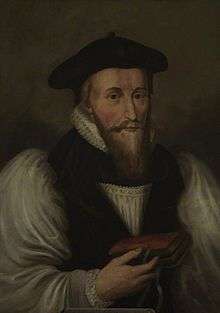 James Montague James Montague |
Translated from Bath and Wells |
| 1618 | 1626 | %2C_English_School_circa_1660.jpg) Lancelot Andrewes Lancelot Andrewes |
Translated from Ely |
| 1627 | 1632 | 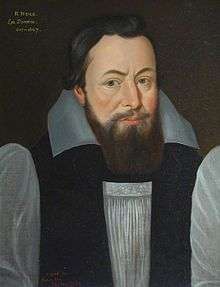 Richard Neile Richard Neile |
Translated from Durham, later translated to York |
| 1632 | 1646 |  Walter Curle Walter Curle |
Translated from Bath and Wells. Deprived 1646, and died 1647. |
| 1646 | 1660 | The see was abolished during the Commonwealth and the Protectorate.[9][10] | |
| 1660 | 1662 | 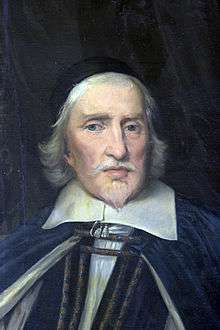 Brian Duppa Brian Duppa |
Translated from Salisbury |
| 1662 | 1684 |  George Morley George Morley |
Translated from Worcester |
| 1684 | 1706 | 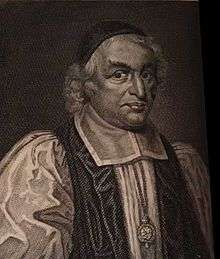 Peter Mews Peter Mews |
Translated from Bath and Wells |
| 1707 | 1721 |  Sir Jonathan Trelawny, Bt Sir Jonathan Trelawny, Bt |
Translated from Exeter |
| 1721 | 1723 |  Charles Trimnell Charles Trimnell |
Translated from Norwich |
| 1723 | 1734 | 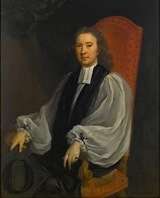 Richard Willis Richard Willis |
Translated from Salisbury |
| 1734 | 1761 |  Benjamin Hoadly Benjamin Hoadly |
Translated from Salisbury |
| 1761 | 1781 | 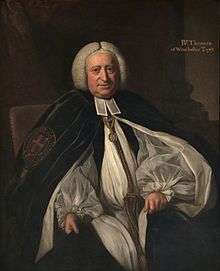 John Thomas John Thomas |
Translated from Salisbury |
| 1781 | 1820 |  Brownlow North Brownlow North |
Translated from Worcester |
| 1820 | 1827 | 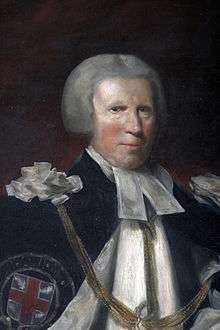 Sir George Pretyman Tomline, Bt. Sir George Pretyman Tomline, Bt. |
Translated from Lincoln |
| 1827 | 1869 | 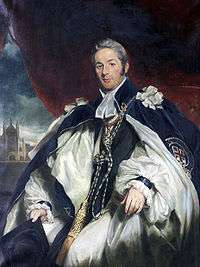 Charles Sumner Charles Sumner |
Translated from Llandaff |
| 1869 | 1873 | 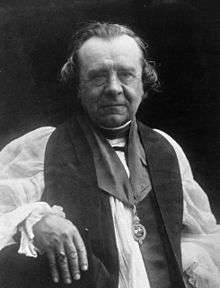 Samuel Wilberforce Samuel Wilberforce |
Translated from Oxford |
| 1873 | 1891 | 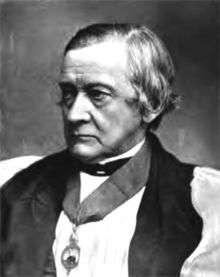 Harold Browne Harold Browne |
Translated from Ely |
| 1891 | 1895 |  Anthony Thorold Anthony Thorold |
Translated from Rochester |
| 1895 | 1903 |  Randall Davidson Randall Davidson |
Translated from Rochester, later translated to Canterbury |
| 1903 | 1911 | 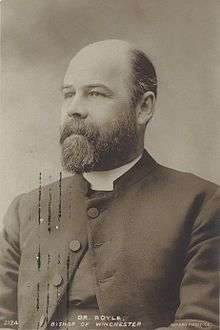 Herbert Edward Ryle Herbert Edward Ryle |
Translated from Exeter |
| 1911 | 1923 |  Edward Talbot Edward Talbot |
Translated from Southwark |
| 1923 | 1932 | 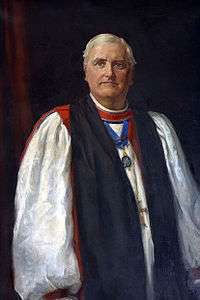 Frank Woods Frank Woods |
Translated from Peterborough |
| 1932 | 1942 | Translated from Southwark, later translated to York | |
| 1942 | 1952 | Translated from Coventry | |
| 1952 | 1961 | Translated from Durham | |
| 1961 | 1975 | Translated from Chelmsford | |
| 1975 | 1985 | ||
| 1985 | 1995 | Translated from Wakefield | |
| 1995 | 2011 | Translated from Stafford | |
| 2012 | incumbent |  Tim Dakin Tim Dakin |
|
| Source(s):[4][11][12] | |||
See also
Footnotes
Sources
References
- ↑ Charles Dodd (1844) Manual of Dignities, from the Revolution to the Present Day p.45
- ↑ Powicke & Fryde 1961, Handbook of British Chronology, 2nd Edition, p. 257.
- 1 2 Fryde et al. 1986, Handbook of British Chronology, 3rd Edition, p. 223.
- 1 2 3 4 "Historical successions: Winchester". Crockford's Clerical Directory. Retrieved 6 January 2012.
- ↑ Fryde et al. 1986, Handbook of British Chronology, 3rd Edition, pp. 276–277.
- 1 2 Greenway 1971, Fasti Ecclesiae Anglicanae 1066–1300: Volume 2, pp. 85–87.
- 1 2 Jones 1962, Fasti Ecclesiae Anglicanae 1300–1541: Volume 4, pp. 45–47.
- ↑ Fryde et al. 1986, Handbook of British Chronology, 3rd Edition, p. 277.
- ↑ Episcopy. British Civil Wars, Commonwealth and Protectorate 1638–60. Retrieved on 20 August 2011.
- ↑ "The Episcopate during the Civil Wars, 1642-1649". The English Historical Review. Oxford University Press. 83 (328): 523–537. July 1968. doi:10.1093/ehr/lxxxiii.cccxxviii.523. JSTOR 564164.
- ↑ Fryde et al. 1986, Handbook of British Chronology, 3rd Edition, pp. 277–278.
- ↑ Horn 1974, Fasti Ecclesiae Anglicanae 1541–1857: Volume 3, pp. 80–83.
Bibliography
- Fryde, E. B.; Greenway, D. E.; Porter, S.; Roy, I., eds. (1986). Handbook of British Chronology (3rd, reprinted 2003 ed.). Cambridge: Cambridge University Press. ISBN 0-521-56350-X.
- Greenway, D. E. (1971). "Bishops of Winchester". Fasti Ecclesiae Anglicanae 1066–1300: Volume 2: Monastic Cathedrals (Northern and Southern Provinces). British History Online.
- Jones, B. (1962). "Bishops of Winchester". Fasti Ecclesiae Anglicanae 1300–1541: Volume 4: Monastic Cathedrals (Southern Province). British History Online.
- Horn, J. M. (1974). "Bishops of Winchester". Fasti Ecclesiae Anglicanae 1541–1857: Volume 3: Canterbury, Rochester and Winchester Dioceses. British History Online.
- Powicke, F. Maurice; Fryde, E. B., eds. (1961). Handbook of British Chronology (2nd ed.). London: Offices of the Royal Historical Society.
